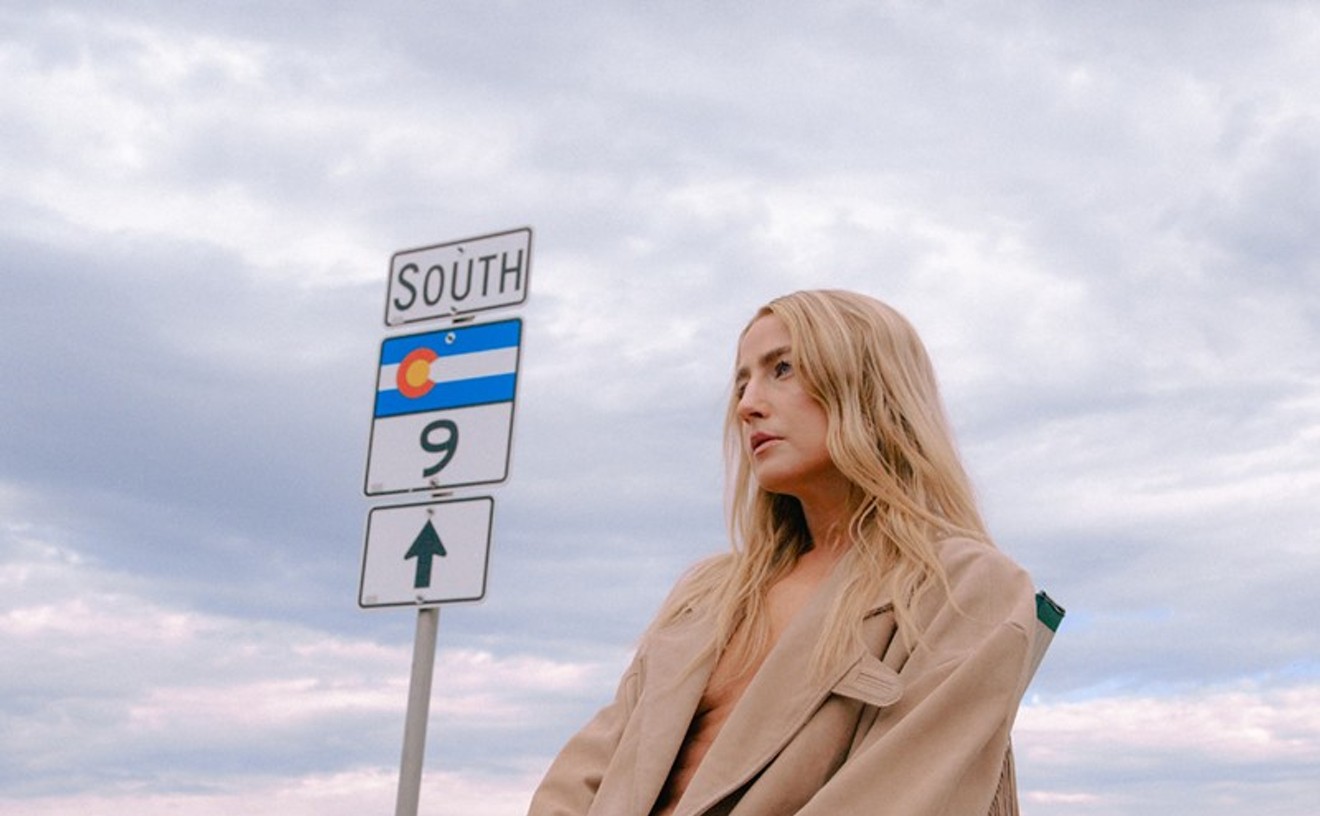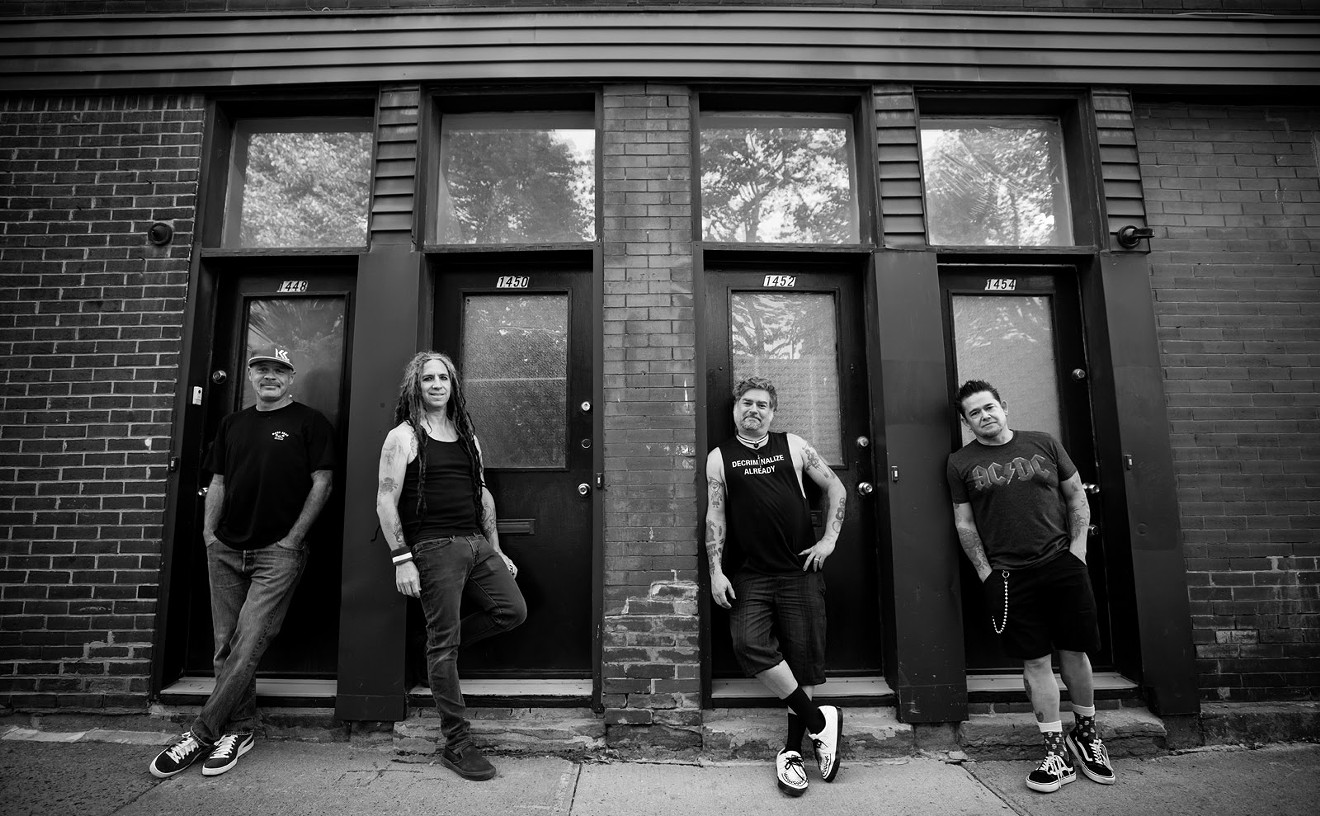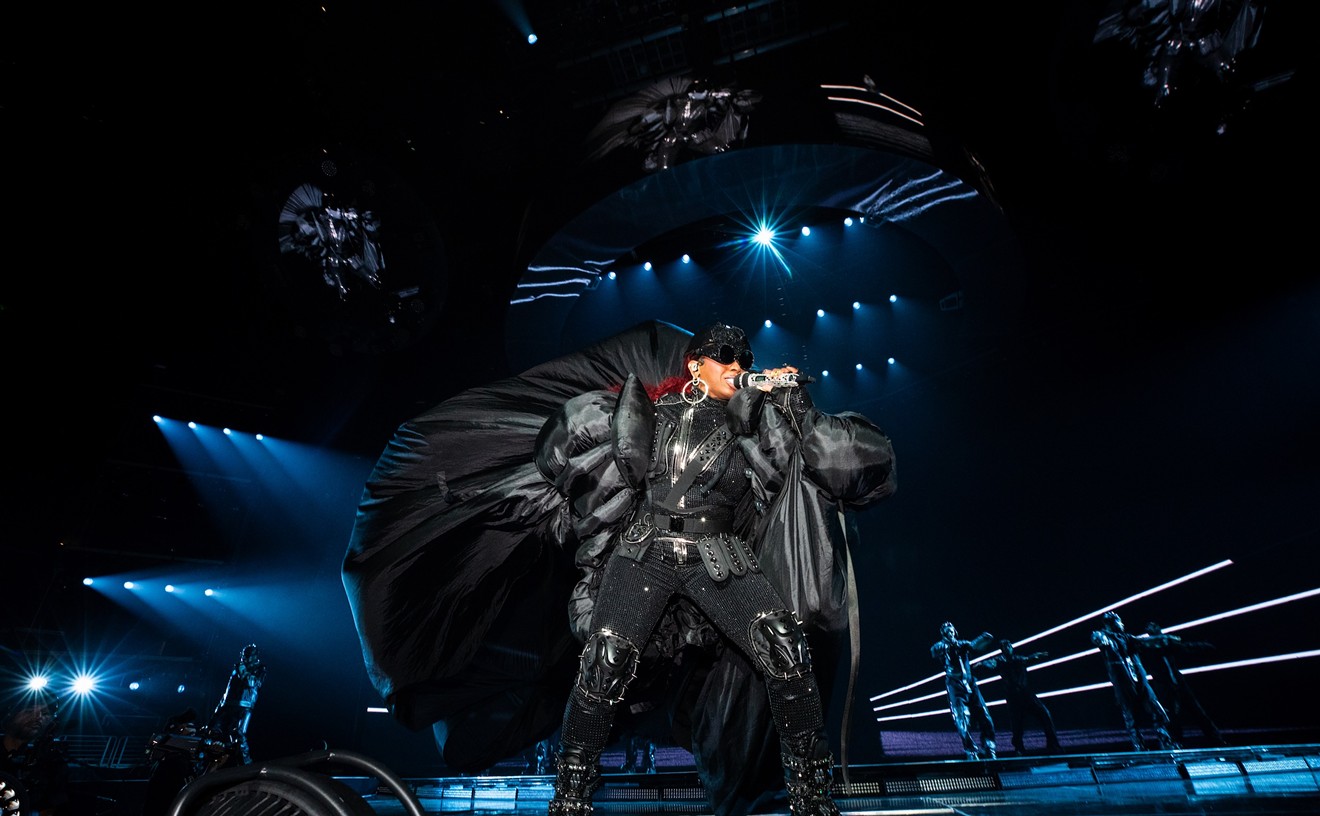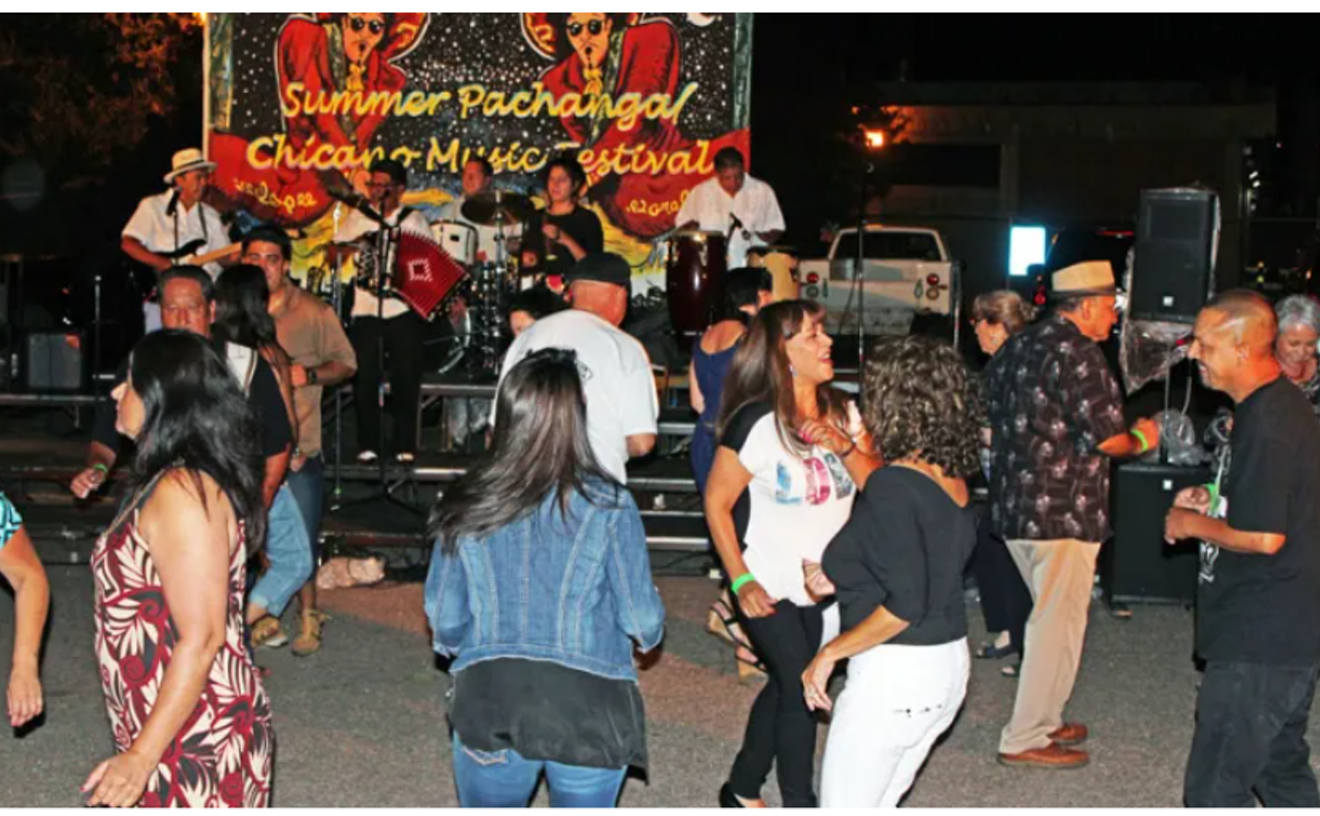This time last month, Matt Morris was on stage with Justin Timberlake, performing in front of millions on the Hope for Haiti Telethon. And that was on the heels of appearing on Letterman — a thrilling gig for any artist, much less an unknown one. But right now, the thirty-year-old singer-songwriter, whose vocal range is every bit as impressive as Timberlake's and perhaps even more expressive, sounds just as excited about the fact that his first headlining gig at the Bluebird this weekend is nearly sold out.
"Isn't that awesome?" Morris exclaims, his voice crackling with unmistakable glee. "I'm so excited!
"What I'm experiencing right now," he continues, "comes from the decision to enjoy these moments. Because, despite what it may look like from the outside, we still have no idea what's going to happen — like, we have no idea where this is going to go. And some people would say, 'Oh, I know where it's going to go.' It's like, 'Well, you have some secret. I don't know how you know, because I don't. You know?'"
The vulnerability underlying Morris's statements is endearing. Maybe it's because he's at the front end of his career and hasn't really had a chance to become jaded and cynical and self-absorbed like so many other artists, but there's just something refreshingly sincere about the guy. He's gracious, polite, and operates without a sense of entitlement — which he'd certainly be justified in having, considering his pedigree and powerful affiliations.
Morris's father, Gary, was a country-music star in the '80s, and Morris himself is a protegé of Timberlake's, who signed him to his label, Tennman Records — something every bit of press he's garnered thus far has mentioned. The obvious implication, of course, is that because of Morris's association with Timberlake — whose name has the clout to open doors that most artists spend a lifetime knocking on — fame and fortune will be handed to him.
Granted, Morris has been given an undeniable leg up compared to other emerging artists — one that's allowed him to skip a few steps — but ultimately, he recognizes that he's going to have to work hard and not squander this opportunity to make a name for himself. Timberlake's certainly not cutting him any slack.
When the two were in the studio recording Morris's debut, the presciently titled When Everything Breaks Open, which Timberlake co-produced with Charlie Sexton, Timberlake pushed him to deliver the best vocal performance possible. "I didn't feel that good about it in the moment," Morris recalls. "It was late and I was tired; I'd been recording for days. But he said, 'I really think you have a better one in you,' and so I had to say, 'All right, fine, let's try it again.' And it turned out to be a great vocal. And we were able to get there because we hold each other to a really high standard."
The friendship between Timberlake and Morris dates back to when they were both castmates on The New Mickey Mouse Club. At the time, they were on equal footing — and despite Timberlake's current stature, they've maintained a similar relationship today. The friends have a profound appreciation for each other's art, which is why the former 'N Sync heartthrob has chosen to champion Morris through his new label. "Justin respects me," Morris affirms. "He respects my need to make decisions as is best for me. He's someone who really knows me well and believes that I do something that's worth hearing."
Before the Mouseketeers met in South Florida, Morris was just a precocious kid with deep Denver roots. "My grandma jokes about it," he says with a laugh, "but between the Hernandezes and Vigils and the extended families on both sides, I'm related to a third of the city."
The Hernandez side comes from his mom, Teri, while the Morris name comes courtesy of his father, who moved to Denver from Texas in the early '70s, establishing his music career here long before his son was born in 1979. Gary and Teri split up when Matt was still an infant, and he stayed behind with his mother, living in the Barnum neighborhood until fourth grade, then moving to Bear Valley with his mom and stepdad, Ken. Matt was in sixth grade at Sabin Elementary when he joined the cast of the New Mickey Mouse Club, and spent the better part of the next five years in Orlando, living in the Mouse's shadow.
Morris was part of an outfit called MMC, which he describes as Disney's first attempt to manufacture a band. He went on a fourteen-city tour of Target stores across the country, but never felt much artistic ownership in the group, just sang backing vocals and occasionally took the lead. So when the show wrapped and MMC was given a chance to tour Europe, Morris turned it down. "It just didn't feel like the right thing to me," he explains. "The choreography and singing these songs that I didn't write and that I didn't even necessarily like that much — at the end of the day, I was listening to other kinds of music. I was playing Tori Amos's Little Earthquakes 24/7; I was in my basement lighting candles and listening to the Feels' first record. To me, I was going into more introspective music and paying more attention to it, and I didn't want to bop around on stage. And so what to some people seemed like a really bad decision, passing up on an opportunity to explode in Europe and after that become a superstar — it just didn't make sense to me."
What did make sense was moving back to Denver. Craving a sense of normalcy, he enrolled full-time at Kennedy High School, intent on experiencing all the things that other kids his age were experiencing. The biggest shock was going from fifteen hours of instruction a week to entire days in school, but he eventually adapted.
As Morris enjoyed a quieter life with new friends, his old friends and fellow Mouseketeers were moving on with their careers. Before American Idol, the New Mickey Mouse Club and its lesser-known counterpart, Kids Incorporated (which introduced us to Martika and Stacy Ferguson — better known these days as Fergie from the Black Eyed Peas), served as veritable launching pads to superstardom. Walking away from the franchise, Morris could have second-guessed his decision. But rather than becoming embittered by the enormous success of his castmates, he marveled at the whole thing.
"I had this really interesting vantage point, watching the careers of my peers from the New Mickey Mouse Club explode," he recalls. "I listened to their records, and I saw them present their music to the world, taking on these huge tasks and seeing the world really respond in epic proportions. It was fascinating to me." But as fascinating as it was, Morris was comfortable being out of the limelight, where he continued to work on his music at his own pace.
"I think it's important to abide by your own timing," he notes. "I think it's been important for me to be very conscious of the alignment of events and the timing in my life, and to move when it makes sense for me. Experience has shown me that if I move too soon — if I move when other people think I should, or if I follow something other than my instincts — then everything gets kind of jumbled up and stops making sense."
By taking his time, Morris was able to relish every moment of the journey. It gave him the chance to mature as a person, to gain perspective on the whole notion of success, to hone his craft at his own pace. All of which is echoed in his songwriting: His songs touch on personal topics that reflect his experiences.
When Everything Breaks Open is a pleasing, if not completely mesmerizing, effort that mostly eschews the blue-eyed R&B soul that you might think Morris would favor given the suppleness of his falsetto. It's hard to say if this will be his breakthrough record; over the course of thirteen tracks, it tries on a variety of styles, but ultimately sags under the weight of too many down-tempo numbers. Regardless of the impact that it has commercially, however, the real joy is in the journey.
A few weeks ago, Morris — who appears to carry a Flip camera wherever he goes — posted a clip of himself sitting in his car outside a station in San Diego, listening to his song being played on the radio for the first time. Before that, he'd posted a number of other videos — marveling at being on the set of Letterman, hand-delivering his album to Twist & Shout. Watching the joyous expressions on his face, you get the sense that he just wants to share the experience with someone.
"I caught a glimpse of the TV screen, and it was beautiful," he says of a recent shoot. "All I kept thinking was, God, I wish Sean was here, and I wish Dottie, my manager, was here, and oh, it would be so great if my mom were here! And that's the motivation to turn on a Flip cam and say, 'Look what's happening. Look! This is so amazing!'
"As exciting as it is, though," he concludes, "it's also what keeps me grounded and humble. As quickly as it went from that to this, I have to acknowledge that it can go from this back to that just as quickly. We have these moments, and we can make the moments feel eternal and can come back and relive them, but we don't know what's coming tomorrow. We don't know what's going to happen after this trip, or this tour or this album. You just don't know."










